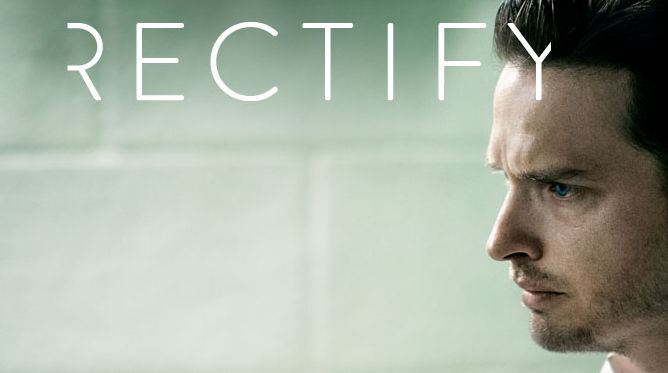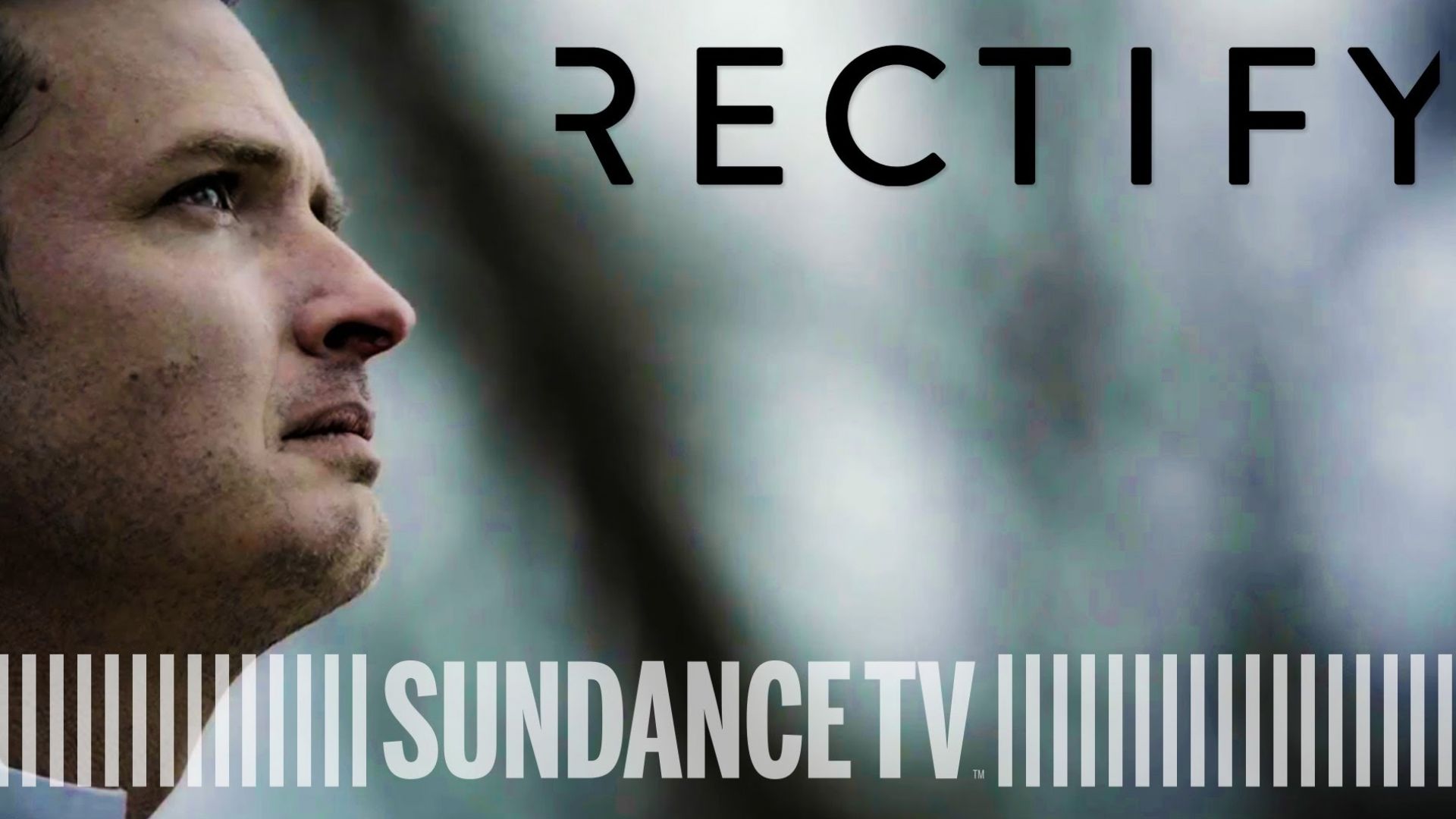
TV You Should Watch - Rectify
 It’s a new Golden Age of Television, providing even the most voracious viewer far more content than they can consume. TV You Should Watch will help you find some of the excellent shows you may have overlooked.
It’s a new Golden Age of Television, providing even the most voracious viewer far more content than they can consume. TV You Should Watch will help you find some of the excellent shows you may have overlooked.
Look up Rectify and you’ll likely see it described as ‘the best show that nobody’s watching.’ Its season 3 premiere drew 224,000 viewers, which bested its season 2 premiere and finale but pales in comparison to other prestige dramas. For comparison, Mad Men and Breaking Bad went out with millions of viewers, and Showtime’s struggling Masters of Sex has never dropped below 500,000 for a single episode. That Rectify has managed to stay on the air with these paltry numbers is something of a miracle. Then again, the fact that a show as patient and affecting as Rectify even exists is a miracle of American television.
The series opens with Daniel Holden (Aden Young) being released from prison. He’s been on death row for 19 years after being convicted of rape and murder when he was only a teen, but new DNA evidence has vacated his sentence. The distance between this and exoneration is immense and immediately felt, as no one is quite sure what to do next. In a very un-television move, this unease becomes the series’ driving force, not the question of Daniel’s innocence or guilt. That’s not to say that his culpability is ignored; it’s inescapably linked to what’s happening in the story, but it’s not what creator Ray McKinnon is interested in exploring. Rectify instead examines messy situations and how people respond to events that, no matter the outcome, can never be set right.
It does this by, sometimes painfully, sitting us down in front of every moment that passes between Daniel, his family, and the people who put him in jail. The first season covers just a few days, and the pace never picks up. Episodes are allowed to sprawl out over a seemingly indeterminate amount of time, and the wafting of conversations from everyday affairs to landmine-filled circumstances becomes electric. Don’t come to Rectify if you’re wanting car chases or layered jokes. Instead, come if you’re looking for emotional meaning, a glimpse at the truths in life that are a bit too raw to look directly at.
What’s kept Rectify alive for this long is its reputation among critics. This has, unfortunately, never translated into mainstream awards season success (what audience honestly cares about a Peabody?), but it shares many of the same hallmarks as other prestige dramas. The camerawork is pristine, capturing the proceedings in a way that’s slightly too beautiful, which works against the strained characters onscreen to maintain a subtle sense of unease. Similar high-quality effort is put into the score and the set design, to the point where it can feel as if you’re watching a film. But the real standout, and what allows such a high-minded show to work, is its superb cast. None of them are very well-known, but all have an astounding grasp on their characters, making it seem as if they’ve breezed onto your screen straight from their little Georgia town. All, even the minor characters, change before your eyes, and their arcs are varied and at times devastating considering how much they’ve already gotten through. Rectify is the kind of show that lives and dies by its characters, and the cast and the writers craft every one of them with the utmost care.
For all of its excellence, Rectify won’t hit you over the head with its ambition. It lulls you into its little world, and it’s not until after you stop watching that you realize how much it was trying to say. Taking a step back will feel necessary as you work your way through this series, and in the age of binge-watching obsession, a thoughtful deep-dive like Rectify is a refreshing change-up.
